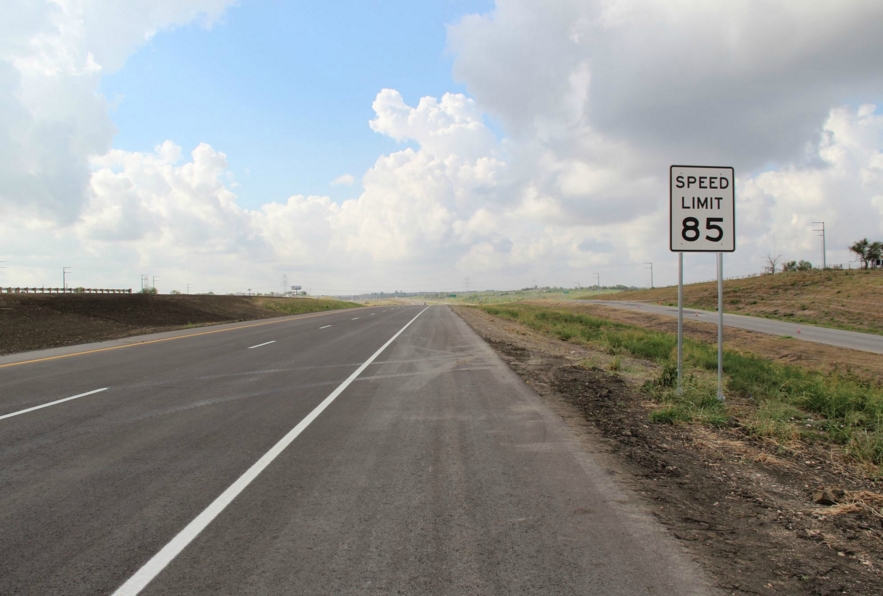
This Texas Independence Day proved sweeter than most, as Texans were finally freed from their ties to a controversial contract with Spanish toll operator Cintra, which filed for bankruptcy on Wednesday, citing $1.7 million in debt. Cintra is the owner of SH 130, Texas’ first foreign-owned toll road, which has the highest speed limit in the nation.
Anti-toll groups describe the SH 130 project as being “a tremendously unpopular, anti-liberty public private partnership.”
Texans Uniting for Reform and Freedom (TURF) and Texans for Toll-free Highways (TTH) have fought the project’s inception since the tollway, which runs 91 miles from Austin to Seguin, was first built in 2012, arguing that it represents “a multi-generational theft of public assets,” reported the Examiner.
State-sanctioned monopolies
“These controversial contracts called public private partnerships (P3s) will usher in the new railroad robber barons of our time — private toll companies operating state-sanctioned monopolies and charging Texans a premium to drive.
“This is about our right to travel being trampled on by well-connected special interests with ties to the Texas Governor Rick Perry’s office.”
But as the anti-toll groups predicted, the project failed due to low traffic counts. The fate of SH 130 will now fall under the leadership of Gov. Greg Abbott, who has made strides to eliminate toll roads completely in Texas.
Cintra, which adopted a more inconspicuous name, the “SH 130 Concession Company,” began charging Texans to use the road on November 12, 2012.
Its contract included a “non-compete agreement prohibiting the expansion of free routes in the entire counties of Caldwell and Guadalupe” for the next 50 years, revealed TTH, a non-partisan political action committee.
SH 130 project “shrouded in cronyism and corruption”
The contract also guaranteed the company 12 percent annual profit funded by Texas taxpayers, as well as forced Texans to cover unpaid toll fees accrued by Mexican drivers.
The foreign-owned tollway cost Texas taxpayers nearly a quarter of a million dollars in advertising fees and a sizeable portion of $19 million in legal fees, which was spent trying to negotiate the contract with Cintra, reveals TTH.
“The SH 130 project, the first and only leg of the Trans Texas Corridor to ever be built, was shrouded in cronyism and corruption from the very start.
“Dan Shelley, lobbyist for Cintra, landed a job in Perry’s office as his legislative liaison in 2003, got his former employer, Cintra, the development rights to the Trans Texas Corridor contract, then went back to work for Cintra after doing the dirty deed.”
Cintra has also been accused of bribing the Texas Department of Transportation (TxDOT) in order to increase the toll road’s speed limit to 85 MPH, while decreasing the speed limit on nearby U.S. 183 from 65 MPH to 55 MPH, in an attempt to both entice and force desperate drivers to pay tolls.
Sacrificing public safety for greed
“The company offered TxDOT $100 million for setting the speed limit to the maximum 85 MPH, and TxDOT took it,” wrote the Examiner. They threw “public safety under the bus out of pure greed. Things like speed limits are being manipulated for money for the benefit a private corporation.”
Now that Cintra has filed for bankruptcy, it’s possible that the tollway could become free. Grassroots groups “have advocated to have tolls come off the road once it’s paid for three legislative sessions,” said TTH.
“Last year, the concept finally managed to take a step forward with passage of HB 2612 that commissioned a study to remove tolls from state-funded toll projects.
“House Transportation Committee Chair Joe Pickett strongly pushed removing tolls from the state-operated northern segments of SH 130 in order to immediately get some traffic relief on I-35 through downtown Austin.
“Today’s announcement of Cintra’s bankruptcy may just hasten that plan.”
Sources:

